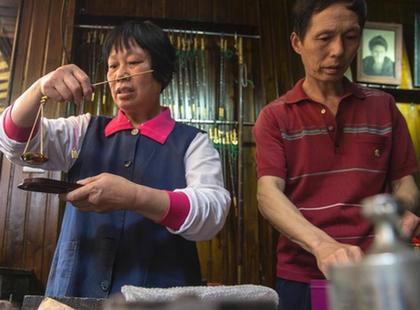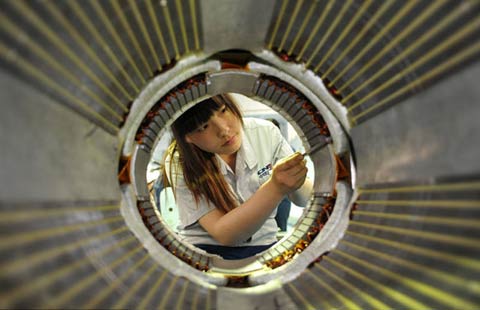China aims to be leader in robotics
By TAN YINGZI (China Daily) Updated: 2015-05-22 07:33By that time, the country will have a complete industrial chain and will be a world-leading research and development center as well as a high-end manufacturing base for robot bodies and key components, he added.
In China, industrial robots are often used to move and load objects and for soldering, welding and assembling during the manufacture of electrical and electronic equipment and automobiles.
However, in 2013, there were only 3 robots for every 1,000 Chinese manufacturing workers, compared with the world average of 6.2.
Zhang Xiangmu, director of the equipment department at the Ministry of Industry and Information Technology, said Chinese robot manufacturers cannot follow the same development paths as traditional equipment makers.
"We have time pressure as the foreign makers are occupying not only the high-end market but also the low-to-medium market," he said.
"Chinese companies must make some breakthroughs, otherwise we will always follow behind others."
Yao Zhiju, the alliance's deputy head, said the technical gap between China and the leading countries is not very large.
China started to build and use industrial robots in the late 1970s when the industry was just taking off globally, he said.
"But it was not good timing for the development of the industry, as the country still had a lot of cheap labor," Yao said. "China has fairly good research power in robot development."
The real gap exists in the areas of quality, reliability and accuracy, he added.
This year, the country will establish a national quality evaluation center for industrial robots in an effort to improve the technical level.
"The sector is now very hot and we should be careful not to make it too hot," he added.
- China calls on automakers to list green cars
- Xiaomi attracts US brickbats
- China may have edge in race to build California's bullet train
- China launches fund to bring back overseas-listed Chinese firms
- Lenovo keeps head above water in 2014
- Lebanon expects Belt and Road Initiative to enhance Arab-China ties
- Nippon Paint and Baosteel walk for kids
- Chinese govt donates video conferencing equipment to Botswana

















